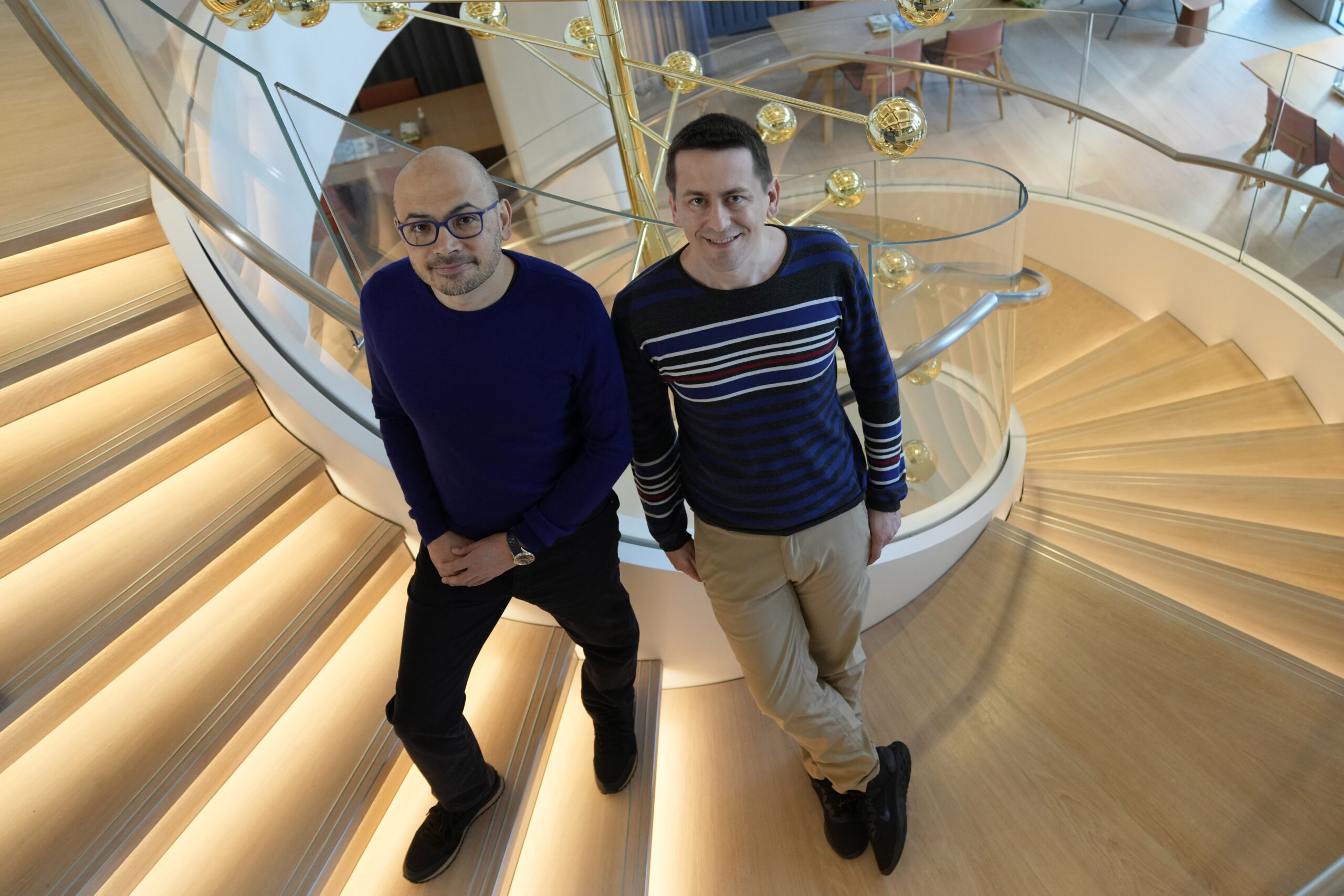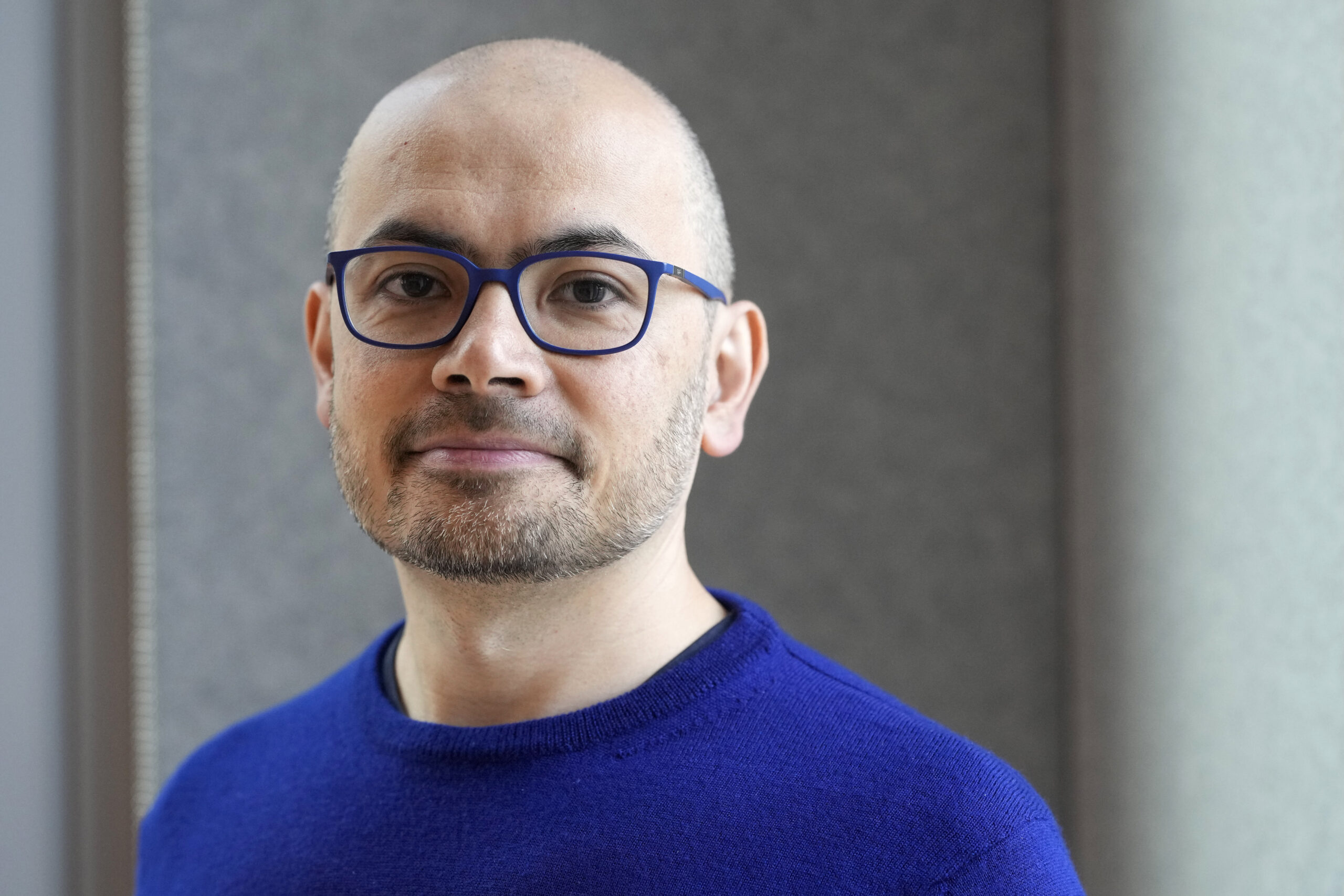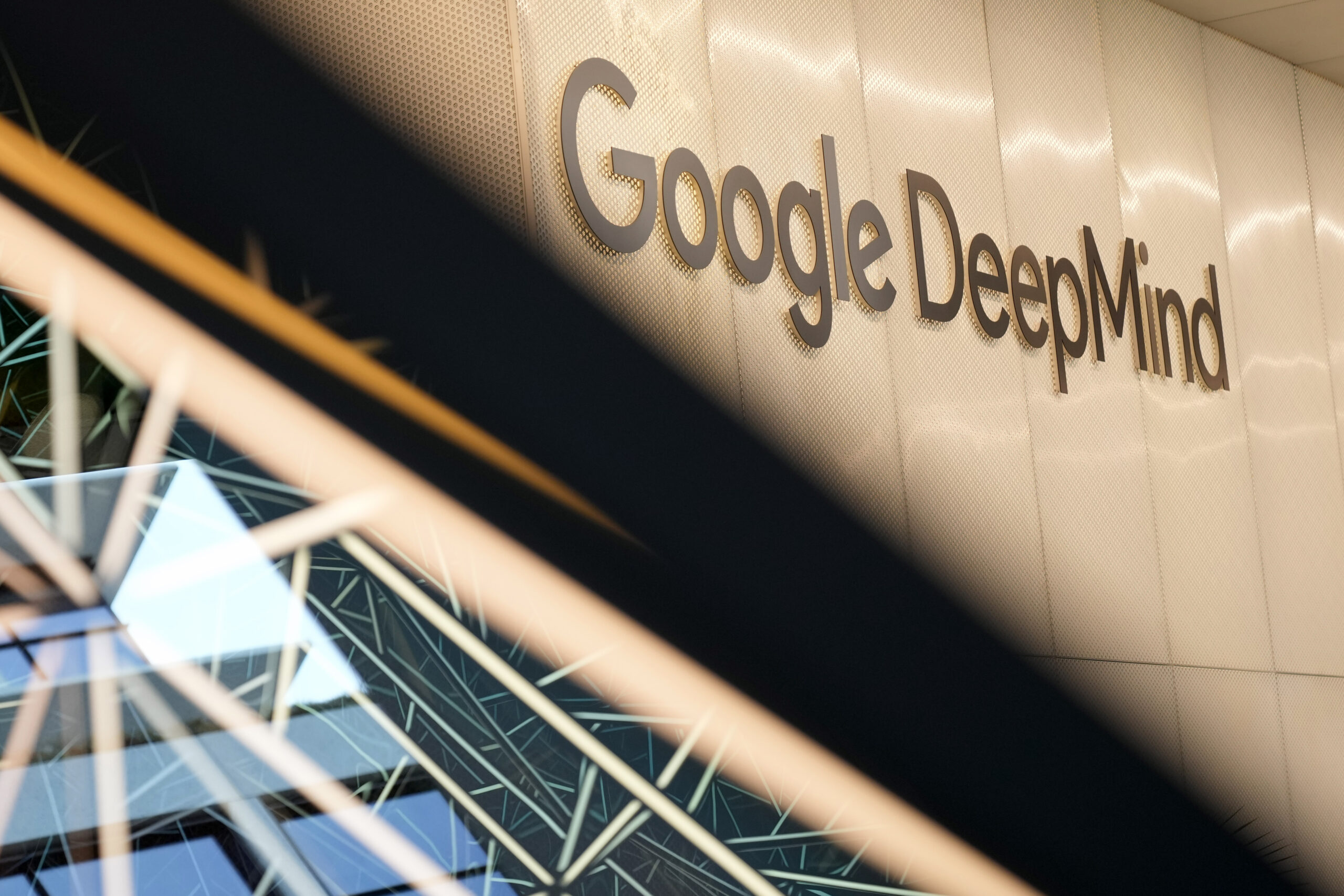By MATT O’BRIEN AP Technology Writer
Hours after the artificial intelligence pioneer Geoffrey Hinton won a Nobel Prize in physics, he drove a rented car to Google’s California headquarters to celebrate.
Hinton doesn’t work at Google anymore. Nor did the longtime professor at the University of Toronto do his pioneering research at the tech giant.
But his impromptu party reflected AI’s moment as a commercial blockbuster that has also reached the pinnacles of scientific recognition.
That was Tuesday. Then, early Wednesday, two employees of Google’s AI division won a Nobel Prize in chemistry for using AI to predict and design novel proteins.
“This is really a testament to the power of computer science and artificial intelligence,” said Jeanette Wing, a professor of computer science at Columbia University.
Asked about the historic back-to-back science awards for AI work in an email Wednesday, Hinton said only: “Neural networks are the future.”
It didn’t always seem that way for researchers who decades ago experimented with interconnected computer nodes inspired by neurons in the human brain. Hinton shares this year’s physics Nobel with another scientist, John Hopfield, for helping develop those building blocks of machine learning.
Neural network advances came from “basic, curiosity-driven research,” Hinton said at a press conference after his win. “Not out of throwing money at applied problems, but actually letting scientists follow their curiosity to try and understand things.”
Such work started well before Google existed. But a bountiful tech industry has now made it easier for AI scientists to pursue their ideas even as it has challenged them with new ethical questions about the societal impacts of their work.
One reason why the current wave of AI research is so closely tied to the tech industry is that only a handful of corporations have the resources to build the most powerful AI systems.
“These discoveries and this capability could not happen without humongous computational power and humongous amounts of digital data,” Wing said. “There are very few companies — tech companies — that have that kind of computational power. Google is one. Microsoft is another.”
The chemistry Nobel Prize awarded Wednesday went to Demis Hassabis and John Jumper of Google’s London-based DeepMind laboratory along with researcher David Baker at the University of Washington for work that could help discover new medicines.
Hassabis, the CEO and co-founder of DeepMind, which Google acquired in 2014, told the AP in an interview Wednesday his dream was to model his research laboratory on the “incredible storied history” of Bell Labs. Started in 1925, the New Jersey-based industrial lab was the workplace of multiple Nobel-winning scientists over several decades who helped develop modern computing and telecommunications.
“I wanted to recreate a modern day industrial research lab that really did cutting-edge research,” Hassabis said. “But of course, that needs a lot of patience and a lot of support. We’ve had that from Google and it’s been amazing.”
Hinton joined Google late in his career and quit last year so he could talk more freely about his concerns about AI’s dangers, particularly what happens if humans lose control of machines that become smarter than us. But he stops short of criticizing his former employer.
Hinton, 76, said he was staying in a cheap hotel in Palo Alto, California when the Nobel committee woke him up with a phone call early Tuesday morning, leading him to cancel a medical appointment scheduled for later that day.
By the time the sleep-deprived scientist reached the Google campus in nearby Mountain View, he “seemed pretty lively and not very tired at all” as colleagues popped bottles of champagne, said computer scientist Richard Zemel, a former doctoral student of Hinton’s who joined him at the Google party Tuesday.
“Obviously there are these big companies now that are trying to cash in on all the commercial success and that is exciting,” said Zemel, now a Columbia professor.
But Zemel said what’s more important to Hinton and his closest colleagues has been what the Nobel recognition means to the fundamental research they spent decades trying to advance.
Guests included Google executives and another former Hinton student, Ilya Sutskever, a co-founder and former chief scientist and board member at ChatGPT maker OpenAI. Sutskever helped lead a group of board members who briefly ousted OpenAI CEO Sam Altman last year in turmoil that has symbolized the industry’s conflicts.
An hour before the party, Hinton used his Nobel bully pulpit to throw shade at OpenAI during opening remarks at a virtual press conference organized by the University of Toronto in which he thanked former mentors and students.
“I’m particularly proud of the fact that one of my students fired Sam Altman,” Hinton said.
Asked to elaborate, Hinton said OpenAI started with a primary objective to develop better-than-human artificial general intelligence “and ensure that it was safe.”
“And over time, it turned out that Sam Altman was much less concerned with safety than with profits. And I think that’s unfortunate,” Hinton said.
In response, OpenAI said in a statement that it is “proud of delivering the most capable and safest AI systems” and that they “safely serve hundreds of millions of people each week.”
Conflicts are likely to persist in a field where building even a relatively modest AI system requires resources “well beyond those of your typical research university,” said Michael Kearns, a professor of computer science at the University of Pennsylvania.
But Kearns, who sits on the committee that picks the winners of computer science’s top prize — the Turing Award — said this week marks a “great victory for interdisciplinary research” that was decades in the making.
Hinton is only the second person to win both a Nobel and Turing. The first, Turing-winning political scientist Herbert Simon, started working on what he called “computer simulation of human cognition” in the 1950s and won the Nobel economics prize in 1978 for his study of organizational decision-making.
Wing, who met Simon in her early career, said scientists are still just at the tip of finding ways to apply computing’s most powerful capabilities to other fields.
“We’re just at the beginning in terms of scientific discovery using AI,” she said.
AP Business Writer Kelvin Chan contributed to this report.



